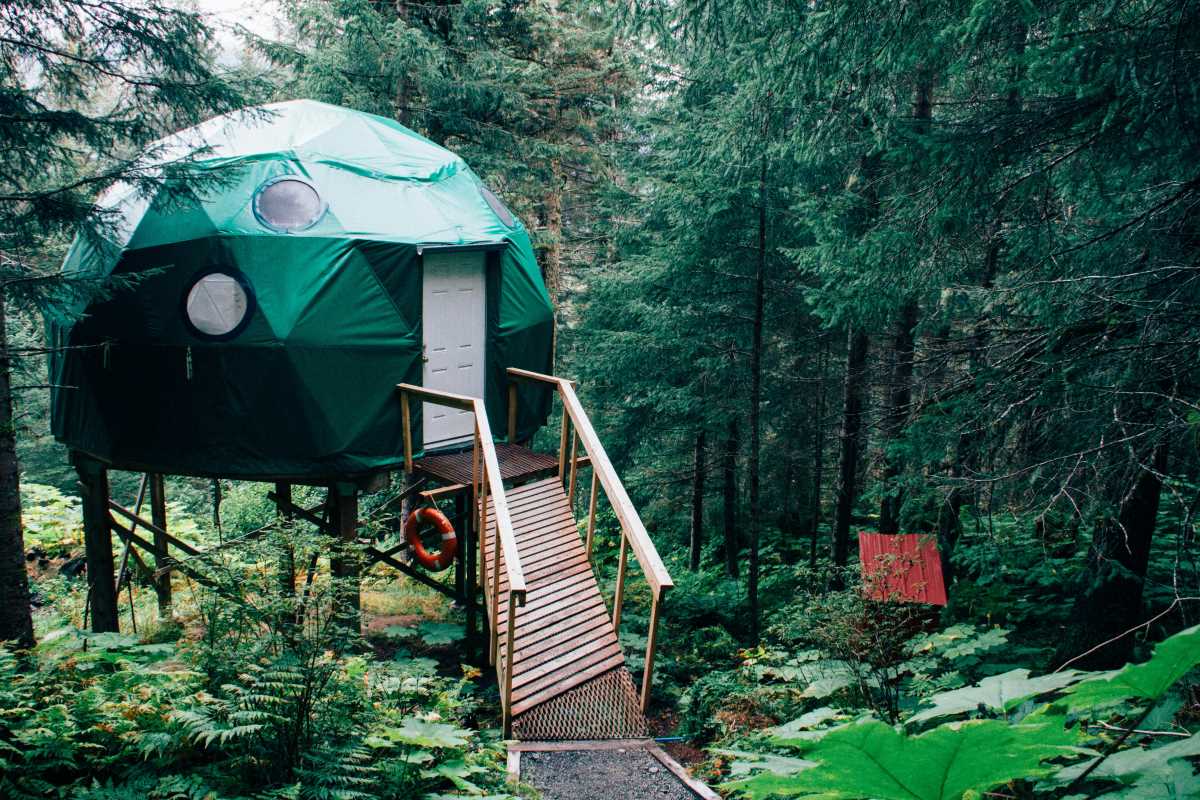Eco-certification serves as a testament to a hostel's dedication to environmental responsibility. It signals to guests that the establishment actively implements practices aimed at minimizing waste, conserving energy, and honoring the natural world. When a hostel earns an eco-certification, it embraces a commitment to operate in a manner that significantly reduces its environmental impact. This certification empowers travelers to make more informed decisions by choosing accommodations that prioritize the health of our planet. For conscientious travelers, staying at an eco-certified hostel means aligning their lodging choices with their values and contributing to a sustainable future.
This label is not just a fancy sticker; it can change the way you experience your trip. Eco-certification covers many aspects of a hostel’s operations. Some efforts include reducing water use, choosing renewable energy sources, recycling waste, and working with local communities. When you see this certification, you know that the hostel is dedicated to sustainable practices.
Why Choose Eco-Certification Hostels in Latin America?
Choosing hostels with eco-certification makes your journey even more meaningful. In Latin America, the natural beauty and rich cultural traditions make every trip extra special. Staying at one of these hostels helps preserve the local environment. You get a chance to enjoy your travels while also helping protect stunning landscapes and traditions for future explorers.
This choice also supports businesses that care about both travelers and the environment. When you pick an eco-certification hostels, you ensure that your money goes toward projects that make a positive impact on the environment, local employment, and sustainable tourism practices.
- It encourages local communities to preserve their culture and natural areas.
- You help reduce your carbon footprint by staying in places that use resources wisely.
- You gain a richer travel experience by being part of a movement toward eco-friendly lifestyles.
- You often get to meet other like-minded travelers who support sustainable tourism.
- You contribute to the long-term efforts of environmental conservation in the region.
Popular Eco-Certification Programs to Look For
The world of sustainable travel uses various certification programs to verify the green practices of hostels. Being aware of these programs can guide you in making informed decisions when booking your stay. Each program has its own set of guidelines that hostels must follow to earn the certification.
- Green Globe: A well-known program that measures a hostel's overall sustainability efforts, including environmental, social, and economic responsibilities.
- EarthCheck: This certification concentrates on energy efficiency, water conservation, and waste management, ensuring that hostels keep a minimal environmental footprint.
- Travelife: Focusing on sustainable tourism standards, it encourages hostels to adopt practices that protect local cultures and natural resources.
- Green Key: A certification that emphasizes reducing the impact on local ecosystems and promoting community involvement.
- Sustainable Tourism Certification: Often locally managed, these certifications focus on regional requirements and support the unique biodiversity and culture of a country.
These programs help standardize what it means to be eco-friendly and make it easier for travelers to compare different accommodations based on clear, measurable criteria. Always look for the official logo and detailed information about each certification when you check out a hostel.
Tips for Sustainable Backpacking
Backpacking sustainably involves planning ahead and making choices that benefit both you and the places you visit. If you plan to travel through Latin America, a few basic steps can make a big difference. Always pack light and bring reusable items like a water bottle, utensils, and a bag, so you contribute less to single-use plastic waste.
- Plan your itinerary with a focus on public transportation and local experiences to reduce your carbon footprint.
- Support local businesses by buying locally made products and eating at locally owned restaurants.
- Respect the natural environment by sticking to marked trails and following guidelines provided by eco-certified accommodations.
- Engage with hostel staff and locals to learn about community efforts to protect natural resources and cultural heritage.
- Monitor your energy use and make efforts to conserve water and electricity even when traveling.
Research and prepare before your trip to ensure that each step you take adds value to both the local community and the environment. Gather information from local tourism boards and reputable sustainable travel websites to stay updated on any new eco-friendly initiatives.
Many hostels also hold workshops or community dinners that share sustainable practices tailored to the local context. Participating in these programs can help you better understand the region's unique challenges and solutions. It can also be a fun way to meet other travelers who share your passion for eco-friendly living.
What is the Importance of Research and Comparison?
Before booking your stay, you should compare a few hostels that meet your eco-friendly criteria. Read reviews carefully to determine if the hostels follow through on their promises and maintain high standards in their sustainable practices. Check the hostel website for detailed information on their energy policies, recycling programs, and community involvement. Doing this background research reinforces your decision and ensures you get good value for your money.
Contacting hostel managers directly can give you additional insights. Ask questions about their daily operations and how they address ecological concerns. Clear communication helps you avoid misunderstandings and sets expectations for your stay. Consider emailing them or using social media to quickly discuss their eco-friendly practices.
- Ask about renewable energy sources used onsite.
- Compare the hostel’s waste management and recycling programs.
- Inquire about initiatives that support local communities and economies.
- Check if they have partnerships with environmental organizations.
- Read guest testimonials for detailed accounts of their sustainability efforts.
Creating a checklist of key questions—about energy use, waste management, and community engagement—ensures you choose a hostel that reflects your environmental values. This personalized approach transforms a simple overnight stay into an enriching experience that supports sustainable businesses.
 (Image via
(Image via





